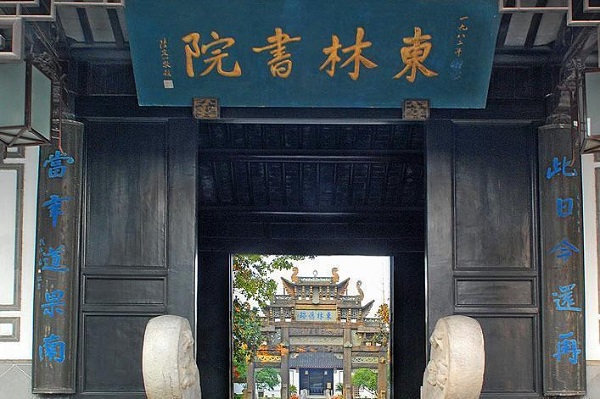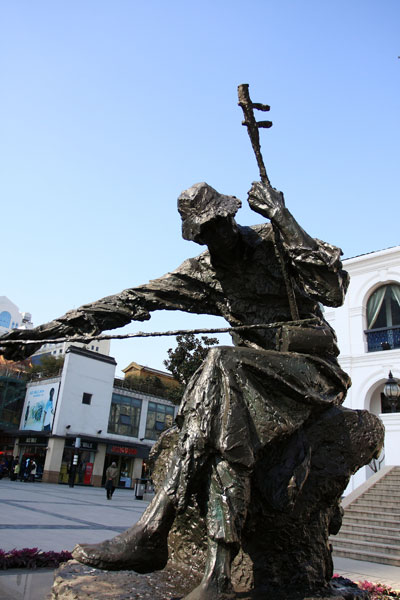
Donglin Academy [Photo/wxrb.com]
Gu Xiancheng, a famous thinker in the Ming Dynasty (1368-1644), founded Wuxi's Donglin Academy.
In 1604, Gu Xiancheng, a dismissed official returning to his hometown, together with Gao Panlong and his younger brother Gu Yuncheng, raised money to restore the academy. Following its restoration, the three gave lectures there.
The three learned scholars called themselves "Donglin People" and pointed out what they considered to be social evil and corruption. They were also keen on fostering innovation and reformation.
The academy used to be the most influential place of learning along the southern Yangtze River.
Famous for the antithetical couplet written by Gu – "The sound of wind, raindrops and readings enter my ears, the affairs of families, nations and the world attract my attention"–Donglin Academy has a history of over 900 years and attracts many visitors from home and abroad every year.
In addition, the famous traveler and geographer of the Ming Dynasty (1368-1644), Xu Xiake, was born in Jiangyin city, Wuxi.
Xu is known best for his famous geographical treatise, and noted for his bravery and humility. He traveled throughout China for more than 30 years, documenting his travels extensively. The records of his travels were compiled posthumously in The Travel Diaries Xu Xiake.
May 19, the date when Xu started writing his famous travel books, has been China's National Tourism Day since 2011.

A statue of A Bing at the musician's former residence in Wuxi, Jiangsu province. [Photo provided to China Daily]
In addition, other famous people from the historic city of Wuxi include the poet Li Shen from the Tang Dynasty (AD 618-907), entrepreneurs Rong Zongjing and Rong Desheng in modern times, scientists Zhou Peiyuan and Qian Weichang, acclaimed writer Qian Zhongshu and linguist Liu Bannong.
The Moon over the Fountain, a folk song written by A Bing, a blind Wuxi-born musician, is a world-renowned work.